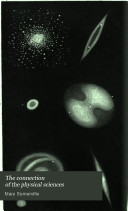Newton's Discovery of Gravity as an Example of Induction in Science
All the knowledge we possess of external objects is founded upon experience, which furnishes facts; and the comparison of these facts establishes relations, from which induction, the intuitive belief that like causes will produce like effects, leads to general laws. Thus, experience teaches that bodies fall at the surface of the earth with an accelerated velocity, and with a force proportional to their masses. By comparison, Newton proved that the force which occasions the fall of bodies at the earth's surface is identical with that which retains the moon in her orbit; and induction led him to conclude that, as the moon is kept in her orbit by the attraction of the earth, so the planets might be retained in their orbits by the attraction of the sun. By such steps he was led to the discovery of one of those powers with which the Creator has ordained that matter should reciprocally act upon matter.
Notes:
He extended the force pulling everything down to the Earth out to the Moon, then to the Sun, and then the planets to see how our solar system really works.
Folksonomies: philosophy astronomy induction
Taxonomies:
/science (0.308735)
/business and industrial/energy/oil (0.269548)
/business and industrial/aerospace and defense/space technology (0.266938)
Keywords:
intuitive belief (0.960891 (positive:0.264531)), external objects (0.949230 (positive:0.415064)), general laws (0.933119 (negative:-0.204682)), induction (0.910315 (positive:0.727424)), earth (0.849393 (positive:0.727424)), force (0.738597 (positive:0.211277)), moon (0.684942 (positive:0.727424)), planets (0.642443 (positive:0.535762)), Newton (0.636255 (positive:0.727424)), bodies (0.611212 (neutral:0.000000)), comparison (0.608990 (positive:0.337340)), orbit (0.593205 (neutral:0.000000)), discovery (0.581440 (positive:0.727424)), attraction (0.581049 (neutral:0.000000)), sun (0.576244 (positive:0.427061)), experience (0.573036 (positive:0.415064)), matter (0.564869 (neutral:0.000000)), surface (0.561458 (neutral:0.000000)), facts (0.543408 (positive:0.306911)), Gravity (0.459567 (positive:0.727424)), orbits (0.455490 (neutral:0.000000)), Example (0.453523 (positive:0.727424)), masses (0.449945 (negative:-0.516147)), velocity (0.448018 (neutral:0.000000)), Science (0.446339 (positive:0.727424)), powers (0.433817 (neutral:0.000000)), knowledge (0.433812 (positive:0.415064)), relations (0.432328 (positive:0.337340)), causes (0.431586 (positive:0.264531)), effects (0.431316 (positive:0.264531))
Entities:
Newton:Person (0.857190 (positive:0.727424)), solar system:FieldTerminology (0.448326 (positive:0.535762))
Concepts:
Solar System (0.975003): dbpedia | freebase | opencyc
Earth (0.848905): dbpedia | freebase
Sun (0.848662): dbpedia | freebase | opencyc
Moon (0.843644): dbpedia | freebase
Planet (0.706458): dbpedia | freebase | opencyc
Mass (0.664272): dbpedia | freebase | opencyc
Dwarf planet (0.632187): dbpedia | freebase | yago
Orbit (0.604073): dbpedia | freebase





